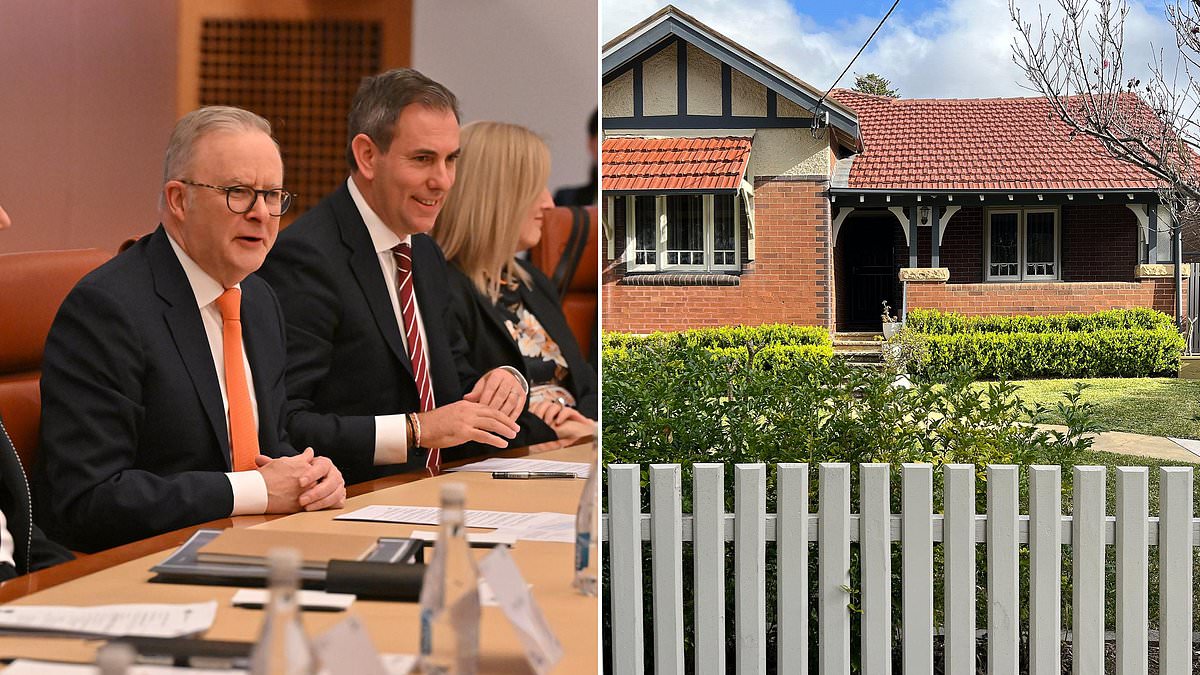A left-leaning think tank has called for the Albanese government to consider levelling a two per cent ‘wealth tax’ on ns earning more than $5million.
In a submission to the government’s three day Economic Reform Roundtable, the Institute recommended three ‘simple’ tax reforms to bolster the nation’s finances.
A wealth tax alone – which would exclude superannuation and the family home – would raise more than $41billion per year, it said.
There was also a call to tackle intergenerational inequality by reviving the inheritance tax, abolished federally in 1979, and scrap the 50 per cent capital gains tax (CGT) discount, introduced in 1999.
Labor lost the 2016 and 2019 elections with a plan to halve the capital gains tax discount to 25 per cent, with Anthony Albanese scrapping such plans in Opposition and leaving it to the Greens to call for an abolition of the CGT discount for future investors.
n landlords receive a 50 per cent CGT discount when sell an investment property – owned for at least 12 months.
If a house goes up in value by $100,000, only $50,000 has to be declared as part of someone’s taxable income.
But the introduction of that policy under John Howard’s Coalition government 26 years ago led to a surge in property prices, with growth far outpacing the increase in wages.
An average, full-time worker earning $104,520 a year can’t afford the typical capital city house priced at more than $1million, with the banks reluctant to lend an owner-occupier more than six times their salary.
This has seen investors flood the market and borrowing against their other properties to cash in on capital growth.
Researchers believe reviving an inheritance tax and scrapping the capital gains tax discount would raise an extra $10 billion and $19billion, respectively, meaning the Institute’s three proposals would rake in a grand total of $70billion.
The think tank claims the money would help pay for ‘well-funded schools and hospitals; decent, affordable housing for all; a world-class NDIS; a fair welfare system and dozens of other things’.
Matt Grudnoff, senior economist at the Institute, said that these were not ‘radical ideas’ and countries like the UK, US and Japan all had inheritance taxes.
‘ is a low-tax country that does not do a good job of taxing wealth,’ he said.
‘It is one of the few developed economies in the world which has neither a wealth tax nor an inheritance tax.’
‘Correcting this would raise huge amounts of extra revenue for essential services and ease growing inequality in .
‘Even if you were to exempt the family home and superannuation, a two per cent wealth tax on people worth $5 million would raise $41 billion per year. If you limited it to just the 200 richest households in the country, it would still raise $12.5 billion per year.’
He added: ‘It’s time to scrap the capital gains tax discount, for many reasons.
‘Not only would it put downward pressure on house prices and reduce inequality, it would raise an extra $19 billion a year.’
But AMP chief economist Shane Oliver said the plan would ‘hurt the economy’.
‘”Tax the rich” sounds fine in theory, but all of those reforms will further increase the tax on high-income earners,’ he told news.com.au.
‘Our tax system is already skewed, it’s already highly progressive.’
Dr Oliver pointed to the fact that the top 10 per cent of income earners in already pay almost 50 per cent income tax.
He said these tax reforms, while they would raise a lot of money initially, would be destructive in the long term.
‘You might help the budget initially but you’ll damage the economy long-term because there’ll be less work incentive,’ Dr Oliver added.
‘Wealth tax I think is incredibly dangerous … You want ns to feel confident to go out and start businesses and build up their wealth – that’s how we get ahead.’
A pair of university economists last week suggested that ns pay capital gains tax on the family home in order to tackle the housing crisis.
Peter Siminski from the University of Technology, Sydney, and Roger Wilkins from the University of Melbourne, say the longstanding capital gains tax exemption on the family home favours the rich and costs the government much-needed revenue.
Neither major party, nor minor parties like the Greens, called for a capital gains tax on the family home or a revival of inheritance taxes at the last election.
